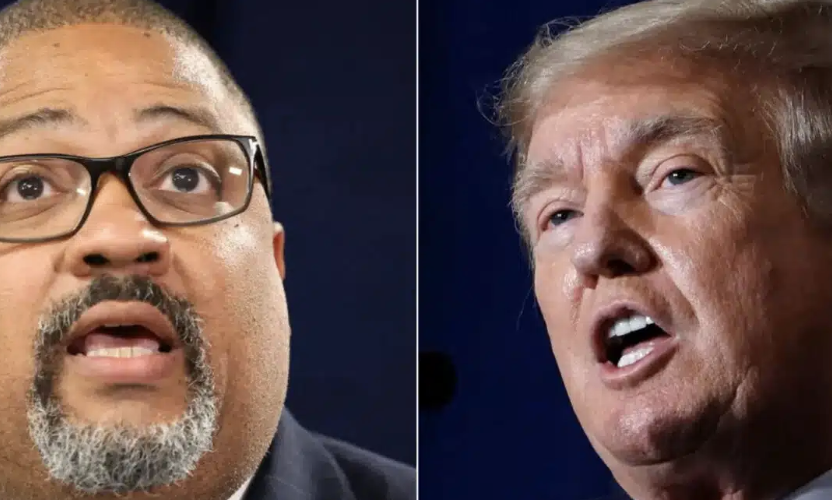Major Development in Hush Money Case Against Trump

District Attorney Alvin Bragg's success in convicting former President Donald Trump on all 34 counts in his hush-money case might pose challenges for Special Counsel Jack Smith’s efforts to secure convictions on an additional 44 charges against Trump, which are being tried in federal courts in Florida and Washington, D.C.
While the first guilty verdict against a U.S. president could bolster Mr. Smith's resolve, it also carries potential risks for the prosecution. This precedent of presidential prosecution might influence the perspectives of judges and justices.
The New York County verdict comes as the U.S. Supreme Court reviews Trump’s claim that presidents should have perpetual “absolute” immunity for actions taken in their official capacities. According to the special counsel, such immunity does not protect illegal activities, like election tampering, which should always be subject to criminal prosecution.
At present, the immunity question does not impact the hush money verdict. Trump seems to have conceded the private nature of the conduct involved. Judge Juan Merchan noted that much of the case’s context was related to campaigning, not governing, and Trump’s attorneys did not raise the immunity issue in a timely manner.
Federal judge Alvin Hellerstein has determined that the payments to adult film star Stormy Daniels were overwhelmingly personal, labeling them as "a cover-up of an embarrassing event" and unrelated to official presidential duties.
This conviction might strengthen Trump’s argument for immunity. In a brief to the Supreme Court, Trump warned that prosecuting a president could lead to "years of post-office trauma at the hands of political opponents," arguing that the threat of prosecution could become a political weapon.
Mr. Smith might counter that criminal prosecution for official acts is rare and does not threaten the "boldness of the president," a term used by Justice Antonin Scalia. However, during oral arguments, Justice Ketanji Brown Jackson acknowledged concerns about "prosecutorial abuse." The New York Sun reported, "Will Bragg’s boast diminish or deepen that concern?"
Trump’s lawyer, John Sauer, argued that upholding Smith’s position could expose every sitting president to potential blackmail and extortion by political opponents. A state conviction by an elected prosecutor might lend credibility to this concern, influencing how much protection justices believe a president should have.
However, the justices have limitations on how they can aid Trump. Justice Neil Gorsuch pointed out that a narrow view of immunity might lead presidents to attempt self-pardons, but this applies only to federal crimes, not state ones.
The New York appellate system would handle the case, as federalism principles mean federal courts intervene in state prosecutions only in rare circumstances. Trump would need to demonstrate a federal issue necessitating federal judicial consideration, according to the New York Sun.
"Trump could benefit from the unique nature of Bragg’s case in two ways," the outlet noted. "First, the district attorney’s use of federal election law—violations of the Federal Election Campaign Act—as a possible basis for a state crime conviction. Although the jury didn’t need to find Trump guilty on that basis, it could serve as grounds for an appeal."
Trump might also claim that his federal rights were violated throughout the prosecution. For instance, he could argue that broad jury instructions compromised impartiality and due process, as guaranteed by the Constitution.
Additionally, Trump might contend that the charges against him are so uniquely tailored that they amount to selective prosecution, reminiscent of Lavrentiy Beria's notorious saying, “Show me the man, and I’ll show you the crime.”
Meanwhile, House Judiciary Committee Chairman Jim Jordan has called for testimony from Manhattan District Attorney Alvin Bragg and another senior state prosecutor about Trump’s prosecution.
Jordan, in letters to Bragg and Matthew Colangelo, senior counsel to the DA’s office, requested their testimony before the Select Subcommittee on the Weaponization of the Federal Government on June 13. Colangelo previously served in President Joe Biden’s Justice Department before joining Bragg to prosecute Trump.
"This hearing will examine actions by state and local prosecutors to engage politically motivated prosecutions of federal officials, particularly the recent political prosecution of President Donald Trump by the Manhattan District Attorney’s Office," Jordan wrote, as reported by NBC News.